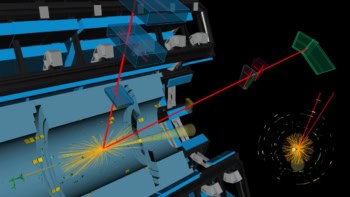The British government should decide immediately not to develop or acquire a replacement for the UK's Trident nuclear-weapons system, according to a report from the British Pugwash Group. It says that a decision not to build a successor to Trident - which is due to be replaced in about 20 years' time - would make a "significant contribution" to reducing the global nuclear threat and help to increase national security. The report was published today on the 50th anniversary of the first British nuclear test explosion, which took place on 3 October 1952 at Montebello Island off the coast of Australia.
Britain’s nuclear deterrent currently consists of four submarines, each carrying up to 16 Trident missiles equipped with nuclear warheads. The British Pugwash Group — part of an international movement of scientists working for world peace — says that not replacing Britain’s 200 Trident missiles at the end of their life would show that the government is serious about multilateral nuclear disarmament. Such a decision would establish a timetable over which the UK would meet its disarmament obligations under the terms of the United Nations’ Nuclear Non-Proliferation Treaty. It would also encourage other nuclear-weapons states to announce disarmament measures of their own.
The Atomic Weapons Establishment (AWE), meanwhile, should no longer be required to retain the capability to design and develop new warheads, according to the report. It says that AWE — which is based at Aldermaston in Berkshire — should instead focus on “verifying” that other countries are not testing or building nuclear weapons. AWE should also be opened up as a central facility to enable UK researchers to take advantage of the lab’s scientific expertise in areas such as high-energy density physics and computational modelling. AWE should in addition contribute to US initiatives to make nuclear materials in the former Soviet Union safer.
“[Not building a successor to Trident] could prove at least as useful as the decision in 1956 that the UK would no longer develop chemical and biological weapons,” say the report’s authors, who include the physicists John Finney, Sebastian Pease and the Nobel laureate Joseph Rotblat. “Were the UK to show a more determined commitment to nuclear disarmament, it could expect to become a leading member, if not the leader, of the group of states actively working for creation of a nuclear-weapon-free world.”



